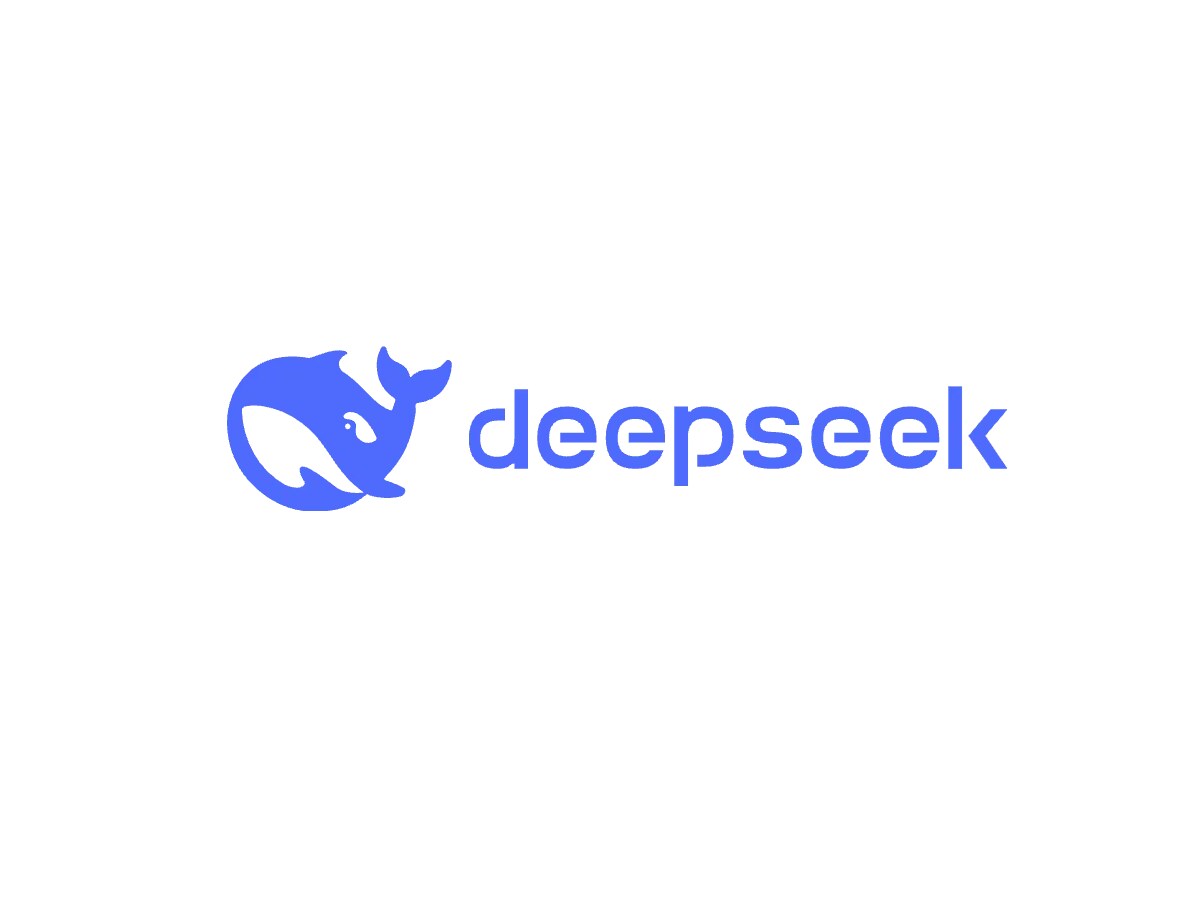We might make money when you click on links to our partners. Discover more.

What is synthetic general intelligence (AGI), and why does it matter? As one of the most talked-about topics in technology today, it has actually stimulated a race among leading companies like OpenAI and Google to turn this cutting-edge idea into truth. Understanding AGI is necessary because it has the potential to revamp markets, impact our society in profound ways, and alter the way we communicate with innovation. Here's what you need to understand about what it might be able to do, how it might transform markets and fields, genbecle.com and the substantial obstacles facing its advancement.
KEY TAKEAWAYS
• AGI varies from conventional AI in key methods in that it would have the ability to believe, learn on its own, and adapt to brand-new obstacles like humans unlike standard AI, which is developed for specialized tasks and runs within a restricted scope. It needs humans to upgrade and fine-tune capabilities. (Jump to Section).
• Once it becomes a truth, AGI would have the ability to make amazing advances in several fields, consisting of health care, research, and finance sectors. (Jump to Section).
• Creating AGI is tough due to the research study challenges that consist of technical, ethical, and societal problems. Addressing these difficulties is central to keeping the safe and positive development of this innovation. (Jump to Section)
Featured Partners: Expert System Software
Find out more
TABLE OF CONTENTS
What is Artificial General Intelligence (AGI): A Clear Definition.
Understanding AGI vs Traditional AI.
Potential Applications of Artificial General Intelligence.
Challenges in Artificial General Intelligence Research.
3 Introductory AGI Courses to Consider.
Frequently Asked Questions (FAQs).
Bottom Line: Why Knowing What Is Artificial General Intelligence Matters.
What is Artificial General Intelligence (AGI): A Clear Definition
Artificial basic intelligence, or AGI, describes a type of synthetic intelligence (AI) that can translate, discover, and carry out any cognitive task that a human can do. Unlike today's AI, which is constructed to deal with specific tasks like advising products or processing data, AGI would be able to adjust to new challenges and apply understanding across various fields. Simply put, this sophisticated kind of AI would believe and reason like a human. While AGI holds great possible, it deserves keeping in mind that it is still a principle today, with no completely established systems offered yet.
Key Capabilities of Artificial General Intelligence
AGI would have a variety of abilities that imitate human intellectual functions, so it can carry out tasks beyond the narrow focus of the current AI tools in the market. Some key abilities consist of the following:
Human-Like Reasoning: The technology would be able to comprehend and make decisions the method humans do. It would think seriously, solve issues, and develop solutions based upon its own experiences and past interactions, comparable to how we use previous understanding to new situations.
Solving Unfamiliar Problems: users.atw.hu Among AGI's strengths is its prospective to deal with brand-new issues. Unlike conventional AI, which is trained to perform particular jobs, AGI would have the capacity to deal with issues it hasn't been directly trained to fix. It could figure out how to approach a completely brand-new obstacle, simply like humans do when faced with something we've never ever experienced before.
Self-Learning and Adapting: AGI might tweak its abilities and gain from experience, without the requirement to be manually upgraded each time. It would observe and examine data, gain from mistakes, and find much better methods to complete tasks with time. This means AGI could adjust to brand-new scenarios and improve at tasks on its own.
Using Knowledge Across Different Areas: AGI would have the ability to take what it finds out in one location and apply it to other tasks. For instance, if it found out how to solve mathematics problems, it could use that understanding to deal with challenges in other fields, like science or organization. The capability to transfer abilities throughout different areas is something people do naturally and would make the innovation flexible in diverse sectors.
Understanding and Reacting To Emotions: Recognizing and responding to human feelings would also be within AGI's abilities. This would be crucial in settings where comprehending people's sensations matters, such as healthcare, customer care, or social circumstances. By responding to feelings properly, AGI would be much better geared up to work with human beings in an efficient method.
Understanding AGI vs Traditional AI
The table listed below offers a picture of the major differences in between AI and traditional or narrow AI by underscoring their abilities, versatility, and present status.
AGI would have the ability to think, discover autonomously, and adapt to new difficulties like people. However, it is still theoretical and has not been realized yet. On the other hand, traditional AI is developed for particular jobs and runs within a fixed scope. It can not adapt to brand-new tasks without human input.
For example, an AGI could discover to identify medical conditions, then use that knowledge to establish tailored treatment plans-and even change its approach based on the client's progress. Additionally, it might use this analytical capability to tasks in entirely different fields, such as producing company techniques or advising on ecological preservation. On the other hand, conventional AI, like a diagnostic tool, can only analyze medical information for particular conditions. It can not adapt to other locations or improve on its own.
)
Potential Applications of Artificial General Intelligence
While AGI isn't here yet, its possible applications cover various fields and hold excellent pledge of drastic improvements in lots of sectors. Without being limited to specific jobs like narrow AI, AGI would be extremely flexible and could use its abilities to resolve multi-disciplinary issues. It might overcome difficulties presently beyond the abilities of existing AI applications.
Transforming Healthcare
AGI would alter the game in healthcare by diagnosing complex and rare diseases with greater accuracy, even in cases where symptoms are uncertain or overlap with numerous conditions. It might produce extremely tailored treatment plans by studying patient history, hereditary details, and real-time health information. In addition, AGI might speed up drug discovery, identifying possible treatments in weeks instead of years by processing enormous datasets and running predictive simulations.
Advancing Scientific Research
In clinical research study, AGI would be able to replicate experiments, evaluate complex datasets, and produce hypotheses. It could expedite developments in quantum physics, genomics, and climate science. By integrating understanding from numerous domains, the technology might uncover connections and options that might otherwise go undetected by traditional AI.
Improving Industry
Organizations in the commercial field might use AGI to increase effectiveness in real-time by handling entire supply chains. It would predict and fix disturbances before they happen. In production, mariskamast.net it might manage self-governing factories, optimizing production processes while keeping safety and quality standards. Its capability to change to changing circumstances would make it a vital tool in commercial environments.

Enhancing Business Strategy
AGI might enhance service decision-making by examining market patterns, customer behavior, and functional information to discover opportunities and mariskamast.net risks. In contrast to narrow AI systems, AGI would innovate options to tough service issues, such as handling financial uncertainty or forecasting long-lasting market shifts. Its ability to gain from varied sources would empower companies to stay competitive.
Redefining Finance
In the monetary sector, AGI could increase forecasting precision by discovering patterns in large amounts of financial information, so financiers and institutions can make informed choices. It would also be able to find scams in real-time by recognizing subtle abnormalities that conventional AI systems might miss out on. Additionally, AGI might build more robust monetary designs, considering complex variables and situations to mitigate dangers.
Challenges in Artificial General Intelligence Research
Developing AGI is one of the most enthusiastic objectives in innovation, but it includes lots of troubles. These obstacles consist of technical, ethical, and societal areas, making AGI development an intricate and multi-faceted procedure. Overcoming the following challenges is tantamount to guaranteeing safety, supporting ethical standards, and carefully planning how AGI's introduction and usage will affect individuals, markets, and society as a whole:
Making AGI Truly Flexible: AGI would require to deal with a wide variety of problems and adjust to new circumstances, just like humans. Building a system of flexibility is incredibly tough since current AI tools are not created to think or find out at this level of sophistication.
Massive Computing Needs: To replicate human intelligence, AGI would require huge quantities of calculating power to process details from varied sources rapidly. Determining how to make such systems effective and efficient enough for real-world usage is a considerable obstacle.
Understanding Human Intelligence: We don't totally comprehend how human thinking works, particularly complicated elements like intuition or consciousness. Without this understanding, it's challenging to develop makers that can emulate human-like thinking.
Making AGI Safe and Ethical: AGI could potentially be misused, like to create prejudiced systems or hazardous tools like autonomous weapons. Researchers need to make sure that AG is developed responsibly and follows rigorous ethical guidelines. This is a difficult task that demands international partnership.
Keeping It Under Control: There's a risk AGI might act in ways we don't anticipate, specifically because it would have the capability to learn and change over time. Ensuring that these systems remain aligned with human worths and are safe to use is among the biggest challenges in AGI research study.
Impact on Jobs and Society: If AGI ends up being a reality, it might replace jobs or trigger economic inequality by benefitting some groups more than others. Preparing for these social impacts is simply as essential as building the technology itself.
High Costs and Resources: Researching AGI necessitates a lot of money, time, and expert understanding. Not all companies have these resources, slowing down progress and leaving smaller organizations out of the race.
3 Introductory AGI Courses to Consider
Familiarizing yourself with AGI can offer you an one-upmanship, whether you wish to advance your profession in AI or just want to remain notified about emerging innovations. The following initial courses can help you gain a much deeper understanding of what synthetic basic intelligence is, so you can solidify your understanding about this appealing AI advancement.
Artificial General Intelligence (AGI): An Initial Course on Udemy
This Udemy course supplies a fundamental understanding of AGI, ideal for beginners with no previous experience. The course covers relevant topics, consisting of the foundations of AI, the essentials of AGI, and the most recent trends in the field. It also checks out the benefits, dangers, and obstacles connected with AGI, equipping you with insights into what the advanced innovation can achieve. The entire course includes 15 lectures and can be completed in roughly 45 minutes. Upon completion, you will receive a certificate to reinforce your qualifications in the task market. This initial course costs $24.99.
Intro to Artificial General Intelligence (AGI): Future of AI on Udemy
Udemy's introductory course uses a comprehensive overview of AGI for learners without any technical background. It talks about the historic context and structure of AGI, the distinctions between narrow AI and AGI, and ethical considerations surrounding its development. In addition, it attends to future patterns in AI and AGI, clarifying the difficulties and chances that lie ahead. Spanning one hour and 46 minutes, the course includes 39 lectures, on-demand video, and downloadable resources. It likewise has a practical test at the end to strengthen your understanding. You will be granted a certificate as soon as you complete the course. It is readily available as part of Udemy's premium strategies, beginning at $20 monthly, or as a different purchase of $49.99.
Artificial General Intelligence (AGI) on Udemy
This Udemy course brings a clear and concise intro to the topic, with on-demand videos and 22 lectures. It elaborates on significant AGI ideas and the role of robotics in AGI development. It also analyzes the ethical, software application, and hardware difficulties in developing AGI. The course offers tests to check your knowledge and a certificate of completion. Priced at $44.99, it is made for students at any level, making it accessible and valuable for anyone who wishes to discover more about AGI.

Frequently Asked Questions (FAQs)
Achieving AGI could reinvent industries, enhance decision-making, and cause significant developments in innovation. However, it likewise raises concerns about ethics, job displacement, and the need for correct guideline to make sure it is established securely and responsibly.
Experts disagree on how far we are from achieving AGI. Sam Altlman of OpenAI thinks in 2025, AI agents might sign up with the labor force, ultimately leading the way to AGI advancement. On the other hand, a survey of AI researchers puts the median price quote around 2047. Despite quick AI improvements, existing systems are still limited to narrow jobs and lack the broad, flexible reasoning of humans-so AGI is most likely still years away.
The idea of AGI completely replacing human beings is still disputed. Despite the fact that it's likely that AGI will help us by taking over recurring tasks, there is a possibility that it could displace certain jobs. That said, instead of completely replacing human beings, AGI is expected to work along with us, managing technical obligations while we concentrate on tasks that require creativity and empathy. At the end of the day, the results of AGI will depend upon how society chooses to manage and incorporate it.
Bottom Line: Why Knowing What Is Artificial General Intelligence Matters
Understanding synthetic general intelligence is imperative because this technology might alter markets, fix challenging issues, and change how we use AI. But as we begin to develop AGI, we should carefully resolve several difficulties, consisting of technical concerns, ethical issues, and its total effect on society. By discovering about AGI's prospective and dangers, we can work towards making sure it is produced properly and used in ways that would benefit everyone.









